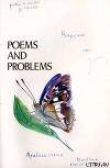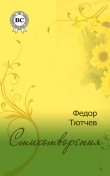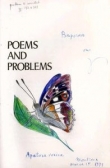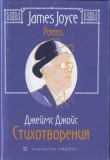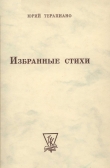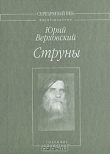A moongate in my wall: собрание стихотворений
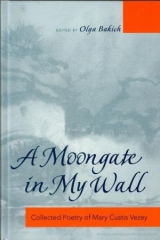
Текст книги "A moongate in my wall: собрание стихотворений"
Автор книги: Мария Визи
Жанр:
Поэзия
сообщить о нарушении
Текущая страница: 17 (всего у книги 19 страниц)
Unfinished translation from the collection Огненный столп (1921). Variant in the last line second stanza of part three in the manuscript: «that bays the moon when it is bright on high». Igdrazil: a gigantic ash-tree, which in ancient Spain symbolized the universe
[Закрыть]
I
Above the city night is soaring, till
each sound grows softer, duller every chord.
And you, my soul, are keeping silence still,
have mercy for the souls of marble, Lord.
And to this speech my soul did answer give
(as though a harp was singing in the skies):
«Why was I ever made to come and live
within this hum an frame, which I despise?
I hastened towards a glory new and rich,
leaving my home; I must have been insane,
for me this earth is now a ball, to which
the prisoner is fastened with a chain.
And, oh, this love, how I have grown to hate
this illness, of which none on earth are free,
which ever darkens with its shade the fate
of worlds so wondrous, although strange to me.
And if there is one thing that keeps me sealed
to shining planets and to days of old,
that thing is grief, my only trusted shield,
that thing is sorrow, full of scorn, and cold».
II
The clouds were covered with a greenish rust,
the golden sunset turned into gray,
and i addressed my body: «Now you must
reply to all the soul has had to say!»
And to my speech my body answered so —
a common body, but with blood aflame:
«The meaning of this life I do not know,
though I have heard that «love» can be its name.
(…)
A woman, too, I love…but when 1 kiss
her lowered eyes, it is a strange thing,
and I am drunk, and overcome with bliss,
as in a storm, or drinking from a spring.
And yet for all I want or take today,
for all my dreams, and all my joys and sorrow
as well befits a man, I will repay
with that sure peril which will come tomorrow.»
III
And when the word of God was set aflame
as Big Dipper in the darkness blue,
the body and the soul before me canie,
and asked of me: «Who, questioner, are you?»
I lowered at the impudent my eyes,
and slowly condescended to reply:
«Pray, answer, do you think a dog is wise
that howls when the moon is bright on high?
Then can it be for you to question me,
to whom all time since worlds began to flower,
until the day that they will cease to be
is but the smallest fraction of an hour?
Me, who, like lgdrazil, the tree, does grow
through Universes seven times seven,
whose eyes regard as equal dust below
the meadows of the earth and those of Heaven?
I am who sleeps…
[1930s]
It's yes and no. A star on high
burns bright a hundred thousand years.
The star burns bright. The years go by,
and so an era disappears.
There is no joy. The world is still
and sad, and through the icy sting
of the ethereal spaces, spring,
carrying roses in her hand,
flies to the sad and silent land.
24 June 1961
The land of Hafiz calls me back, to rove
where my Gulnara's gaze shone green and bright,
and tentwise over her and me above
was spread the sapphire chasuble of night.
And memory, deprived of all these things,
looks everywhere for landmarks of that vale
where waits the lute, forsaken, and where sings
to ageless rose, an ageless nightingale.
[1960s]
I am filled with a sadness by whispering grass —
it will wither, and roses will die and decay,
and your own precious body will also, alas,
be changed into flowers, and turned into clay.
All memory of us will vanish. And then
skilled fingers will fashion a beautiful thing,
a pitcher of clay, which will live once again
and be filled to its wide golden throat at spring.
And someone, perhaps, by the well where they meet
embracing each other, with sunset aglow,
will drop that dear clay, which will slip to her feet
and ring as it breaks into fragments below.
[1960s]
At times when the spotted moon
with torn and ragged clouds is strewn;
at times when in the city stream
the isle of dead its last does dream,
and every leaf on every tree
is full of spring impurity,
– then, hiding in the twilight thick,
a man will make his step more quick,
and hasten from that road and past
where crosses come to life and stare,
and on one's breath a shadow cast
from rocky height that rise up there…
– There by the cemetery wall,
you stood with me, – do you recall?
And fresher than a mountain stream
the April kiss to us did seem.
20 May [1930s]
From the collection Прикосновенье, Munich, 1959.
[Закрыть]
From my childhood, you were always near me—
in a woman's tender first embrace,
in the floor that bore my infant footsteps,
in the first warm sunlight on my face.
After that, you always walked beside me,
gave me Paris in the month of May,
Andalusian gardens, Roman sunrise,
– speaking Russian all along my way.
Then, I thought – not knowing you were with me —
that it was myself I used to hear;
there was too much noise and too much gladness
drowning out all else in my young ear.
It is only now, when all is quiet,
that I have been able to divine
finally, the voice – in all the stillness —
which I long ago mistook for mine.
Now I know: if ever I was worthy
in this life, from very early youth;
if at any time my earthly falsehood
had in any way resembled truth;
if I kissed a woman without wounding,
felt a flower, and it never died,
– it was all because you leaned to touch me,
all because you never left my side.
And of all the things you did, the wisest
was that all day long till night would fall
you were always able to protect me
from myself, most dangerous of all.
March 1960
From the collection Навстречу небу, Frankfurt-on-Maine, 1952.
[Закрыть]
Hot as a bonfire is the summer noon,
but in this wood relief awaits you still,
the morning freshness will not leave it soon,
and it is all suffused with early chill.
Stay for a while. Sit in the nut-grove bower
upon this hidden moss-grown stump, and hear,
while drinking in the languor of the hour,
the wondrous tale unfolding for your ear.
A leaf is wafted to the mossy ground;
fragrant, the little mushrooms upward reach;
a sigh, a rustle, whisperings… the sound,
insatiable, of creation's speech.
28 Feb. 1961
From the collection След жизни, Frankfurt-on-Maine, 1950.
[Закрыть]
By the starry sky and my own soul
You proclaim that You indeed exist.
As an infant blind from the beginning,
never having known his mother's face,
yet remembers whispering and singing,
hands caressing tenderly and bringing
gentle warmth and never-ending grace,
so do I, not having ever seen You,
know You, feel Your breath from where I stand,
hear Your song, Your whisper understand,
and against all human earthly reason
recognize the warmth that is Your hand.
13 Mar. 1961
From the collection Разрозненная тайна, Munich, 1965. Variant in the first line of the first stanza in the manuscript: «Oh, yes, it's good! Not in the present.»
[Закрыть]
Of course, it's fair! Not in the present
the end of which it cannot see
and not in that which it bewails
or does not have the strength to be.
But in the changing succession
of suddenly bedazzled days,
its gift of momentary gladness
the transient kindness of its ways.
So all around us, and forever:
under a dagger's constant aim
people will kiss and gather flowers
and build their houses just the same.
In spite of all the grief of partings,
of all the hands wrung in despair,
of all premeditated falsehood,
it still will be forever fair!
17 July 1965
From the collection Навстречу небу, Frankfurt-on-Maine, 1952.
[Закрыть]
Children are taught in textbooks
that stars are so far away —
I somehow never believed them,
those things they used to say.
I used to love as a child
to stay awake in bed:
and stars would ever so lightly
rain tinkling round my head.
From the blackened boughs of chestnuts
I would shake them down to the sand,
and, filling my pockets with them,
could buy the wealth of the land.
Since then I've been mean and stingy,
– oh heart! – but, forsaking youth,
I never forgot, growing older,
my childhood's merry truth.
We live low down on the ground
and the sky is so far, and yet —
I know that the stars are near us
and can be easily met.
15 June 1967
From the collection След жизни, Frankfurt-on-Maine, 1950.
[Закрыть]
In your plain little coat and kerchief,
so familiar and dear, you stand,
the key to our promised heaven
you hold in your empty hand.
Let's set out once again together!
The hills ever darker grow.
Does it matter that we are tired?
We've so little left to go.
If only we're never parted
in the lonely course of our fate,
if we only have strength together
to reach the Highest Gate!
Once again, let us bless each other
as we used to, and never fear —
they will let us enter together,
that's long been decided, dear.
July 1967
From the collection След жизни, Frankfurt-on-Maine, 1950.
[Закрыть]
Guided by some lightly winging spirit
far beyond the sea the birds have flown.
On this dark and bleak November morning,
why do you and I stay home alone?
Maybe we should follow – take a knapsack,
staff and flask, some good and trusted books,
and pursue the swiftly flying swallows
over woods and meadowlands and brooks?
Only those who linger are un able
to partake of joys on Earth arrayed.
Every turnpike, boundary and barrier
we would pass, unseen and unafraid.
Surely then, at break of day tomorrow
you and I would reach the rosy haze
over gleaming rocks and crested breakers,
slender palms, and golden blessed days!
And as surely, to the fullest measure,
we who dared would be repaid indeed
for the grain of utter faith within us,
for that single mustard seed!
[1960s]
First part of a poem from the collection ,Неуловимый спутник, Frankfurt-on-Maine, 1956
[Закрыть]
When I was a boy I used to be your friend,
beautiful town of parks and lonely statues,
dense lilac groves and empty palaces, —
you hadn't yet been visited by grief.
Your Gumileff was still a carefree youth,
Akhmatova – a schoolgirl and in love,
and Innokenti Annensky had not
died suffocating at your railroad station;
even your Pushkin used to seem to me
not dead, but living, not yet grown up,
but just another of my noisy classmates.
Decades have passed. Impossible to count
your losses. All your palaces now lie
decaying. All your poets have been killed
by silence, bullet, or complete contempt.
Alone the name of Pushkin, as of old,
still shines above you like a glorious promise
– a token of the coming future truth.
[1960s]
From the collection Прикосновенье, Munich, 1959 Variant in the first line of the last stanza: «Our world is sick. It whispers invocations».
[Закрыть]
There s such a wealth of beauty in the world:
a maiden’s breast, a flying eagle's wing,
loaf of a maple, sunrise in Rialto,
a lily-of-the-valley in the spring;
a leaping doe; the Milky Way, a sail,
the Volga's great expanse, a child's eyes…
You see yourself: too many things to mention
for you and me to count or to surmise.
And yet is life not easier for knowing
that everywhere around you children roam,
and maples grow, and there are waves, and maidens,
or simply someone's garden and a home?
You say to me: All that is transient, passing!
But you are wrong! Next spring, in that green bower,
another doe will leap again, as lightly,
and underfoot will bloom another flower!
Our world is ill. It whispers invocations
and tries to smother what in life is true.
But nowhere in it stands a ruined building
where grass will not come up anew.
[1960s]
From the collection Прикосновенье, Munich, 1959.
[Закрыть]
No pebble in ravenna's sculptured tomb,
nor crimson paint-dab in the Vatican, —
I merely was a wisp of merry spume
upon the ocean's blue and distant span.
But when a sail came toward me, I would swirl
to meet it; I have played with reefs near land,
caressed the body of a sun-tanned girl,
and, tired, dug into the golden sand.
My fleeting course no great event did jar;
for one chance moment was my fate unfurled,
yet I was happier and richer far
than all the tombs and castles of the world.
[1960s]
From the collection Навстречу небу, Frankfurt-on-Maine, 1952.
[Закрыть]
Dry the source that ran in the ravine.
Hot the noon. But take a look again:
in the hollow stump, some moisture still —
fusty water left there by the rain.
Playing with your twig – be very careful
not ot splash it out around the brink —
even though it's pitifully scanty,
someone still may need it for a drink!
After dawn tomorrow some small creature —
squirrel, hedgehog – may come by this rill
and may drink. You too – who knows what happens? —
yet may taste it in a final thrill.
[1960s]
From the collection Прикосновенье, Munich, 1959.
[Закрыть]
It's hardest of all to say goodbye,
it is best to be alone to die.
For no one at all to be near, instead
just an empty room, a chair, a bed,
not to see anyone sadly weep,
not to have any small dog creep
from under your bed to lick your cheek,
or a sun ray come through a crack and peek,
or a butterfly dart in the window So
may it not be spring when I have to go!
May I die in the night! When a single star
may fall… and another… again… How far
easier, maybe, to go away
down such an
utterly
empty
way.
[1960s]
From the collection Разрозненная тайна, Munich, 1965.
[Закрыть]
I lost them all along the way,
those words 1 failed to clothe in sound.
Like swallows on a winter day,
never again can they be found.
I didn't show them much concern,
so they departed, taking wing.
And yet perhaps they will return
to others, in some future spring?
[1960s]
From the collection Навстречу небу, Frankfurt-on-Maine, 1952
[Закрыть]
Yes, now it's empty here… His silhouette is gone,
it isn't at the desk, nor in the easy-chair.
I his stillness! And the thought that he is here no more
How can you justify, how can you call it fair?
And yet – don't weep! And leave this vacant room!
Go down the stairs, stand by the window-pane,
look hard into the fading blue of dawn.
You see – that's he, there, striding down the lane!
Don't try to call – you cannot bring him back!
But know: he lives, his life will never end.
He had been visiting, and has gone off once more.
Listen – he's singing! Far…around the bend.
[1960s]
Unfinished translation from the collection Вторая книга стихов, Paris, 1928.
[Закрыть]
I shall not die. Nor can it be, I know,
that earth without me in the gladsome space
would draw its thread of fire and ever go
along its senseless and its joyful race.
It cannot be that after I am gone
the earth would blossom, wilt, and roll ahead
among the worlds, that trees would rustle on,
that snow would circle, after I was dead!
It cannot happen. I assure you. I
will stubbornly continue on my course,
and when the awful hour has come to die
will push the coffin's lid with all my force,
and I will shout: I do not want it so!
I need to feel this gladness that is blind!
Shoulder to shoulder with my sweet to go!
To give the sun whatever name I find!
No in a stuffy box you cannot lay
one who has spurned all
I want to live, and I shall live, I say
and…
[1960s]
Unfinished translation from the collection Вторая книга стихов, Paris, 1928.
[Закрыть]
Let life grow dimmer, harder every day,
let work become more vain, more useless, let
men we can speak to seldom come our way,
I thank You for the right of living yet.
And let the years…
Indeed it is but nothing that one pays:
a tear and sigh – for fields, for songs afar,
for cherished voices, for a brother's gaze,
and for the air of this rejoicing star.
[1960s]
Once a golden cloudlet spent the night
on a giant cliff's great rugged breast;
than at daybreak speeded on its quest,
gaily playing in the azure light.
But a spot of moisture lingered, traced
in a wrinkle on the ancient stone;
lost in thought, the giant stands alone,
weeping softly in his barren waste.
10 Jan. 1961
То V. Smolensky
I am more restless than another still, —
a word that's said with casual caress,
a furtive glance – still send through me a thrill,
alike a tender glance or vivid dress.
And even yet to me it is a pleasure
to… a fancy, strange and far away
to suffer from a rime, at times to measure
emotion, caught by chance upon the way
But every day the soul does stricter get,
obeys the ray that moves not, and I feel
that I will teach that same emotion yet,
though that same rime to be of sadless zeal
And soon, I know, – thanks to the God who takes
us onward with a wisdom-guided palm, —
we will exchange anxiety that aches
for heavenly and light-abounding calm.
11 June 1930
More verse? What for? Already from their curse
the soul is sad, as unsuccessful verse.
Already, when I barely close my eyes —
comparisons to you before me rise.
You are w o ndrous than a rose, and, too,
more tender than my tenderness for you,
or you are sad, a drooping willow tree,
or toiling, as a love-abounding bee,
or else you dream – and in that mood you stay
to me more puzzling than a gloomy day.
Our life is plain, less visible by far:
and you are worse – yet better loved you are.
ca. 20 Aug. [1930]
То Katherine Garon
Out-of-doors – the murky winter light,
frosty moon, and stillness of the night.
Hut your window has been covered long
with a screen, reliable and strong.
Out-of-doors, above the house and tower
fearful is the moon this chosen hour.
Yet you sleep, the moon you do not heed:
you are dreaming other dreams indeed.
Out-of doors, beneath the moonlight glow,
stubborn guard, I wander to and fro.
But it is not joys of love that fill
your illusions in the midnight still.
[1930]
Poem not found in a collection of this poet; presumably translated from a publication in a Russian emigre newspaper.
[Закрыть]
То М.Кгuzenshtern
From tired lid, a tear crawls down my cheek.
Coins jangle on the church collection tray.
No matter what we pray for, what we seek,
it's always for a miracle we pray.
That two times two make five instead of four,
and straw would turn into a rose in bloom,
that I be home, in my own house, once more,
though there is no such thing as house or home.
That from the churchyard mound where grasses sway
you suddenly step out, alive and gay.
[1970s]
From the collection Южный дом, Munich, 1968.
[Закрыть]
Like some strange blessing that descends upon us,
our kiss is full of fire and passion swift.
And yet I know: a future day is coming
when I will have to choose your wedding gift.
So let it be: some shaken thrones will tumble,
and mighty cities fall, and forest burn.
Laws that are ironclad were once established, —
once and for all they will remain stern.
I’ve long outgrown all manner of partitions,
of language, and of blood, and even race,
and all those other age-old walls and fences
with which a man surrounds his private place.
Even today, I hate that coming hour
when, speaking softly, you will say, «My dear!
A temporary harbor may be lovely,
but now it's time the ship should homeward steer.
My destiny is clear, – you will explain, —
I'm but a door where generations stand
yet to be born, of small and slant-eyed people
with yellow skin – as ever in my land».
And you will leave forever, disappearing
behind blank walls which I deny in vain,
– in cold betrayal, though without betraying —
into the cruel truth of your domain.
No races, castes, or creeds… Wide as the sea,
like that same sea, I will remain alone,
wearily mirror someone else's dawns,
and, longing for the East, complain and groan.
Alone and free…But truly, what of that:
I'm quite prepared, forsaking all desires,
an unknown passerby, to be the last
to warm my hands at other people's fires.
23 Jan. 1973
A.N. Pleshcheev's poem was published with notation «С английского».
[Закрыть]
The Christ Child had a garden once,
and many grew the roses there.
He gave them water twice a day,
so he could have a wreath to wear.
And when the roses came to bloom,
he called the children in, to share,
bach took a flower for himself,
and soon they left the garden bare.
«How will you make yourself a wreath?
There's not a rose on any bed!»
«You have forgotten that the thorns
are left for me», the Christ Child said.
And so they took the thorns and laid
a prickly wreath upon Him now,
and scarlet were the drops of blood,
instead of roses, on His brow.
1948
From the collection Закат, Paris, 1931.
[Закрыть]
Close tighter every door and close your eyes,
forget that you are living, think not then,
and let your blindness guard you from the skies
and deafness – from the noise of earthly men.
Know not of the beginning and the end —
and a new world before you will arise!
So in his coffin does a dead man send
a smile to visions hidden from our eyes.
29 June [1930]
Days are passing after the nights
putting out – what care they? – the lights.
Dream on dream float onward and on,
all alike and black every one.
Ever lower the sky does grow.
God, it's death approaching, I know.
God, I know it's you who led
me on poverty's path ahead,
turned off near me all the lights
of the dreams the days and the nights,
so that I, in the dark around,
on the empty, ice-covered ground,
being sentenced, like all, to die,
found nothing of which to cry.
29 June [1930]

